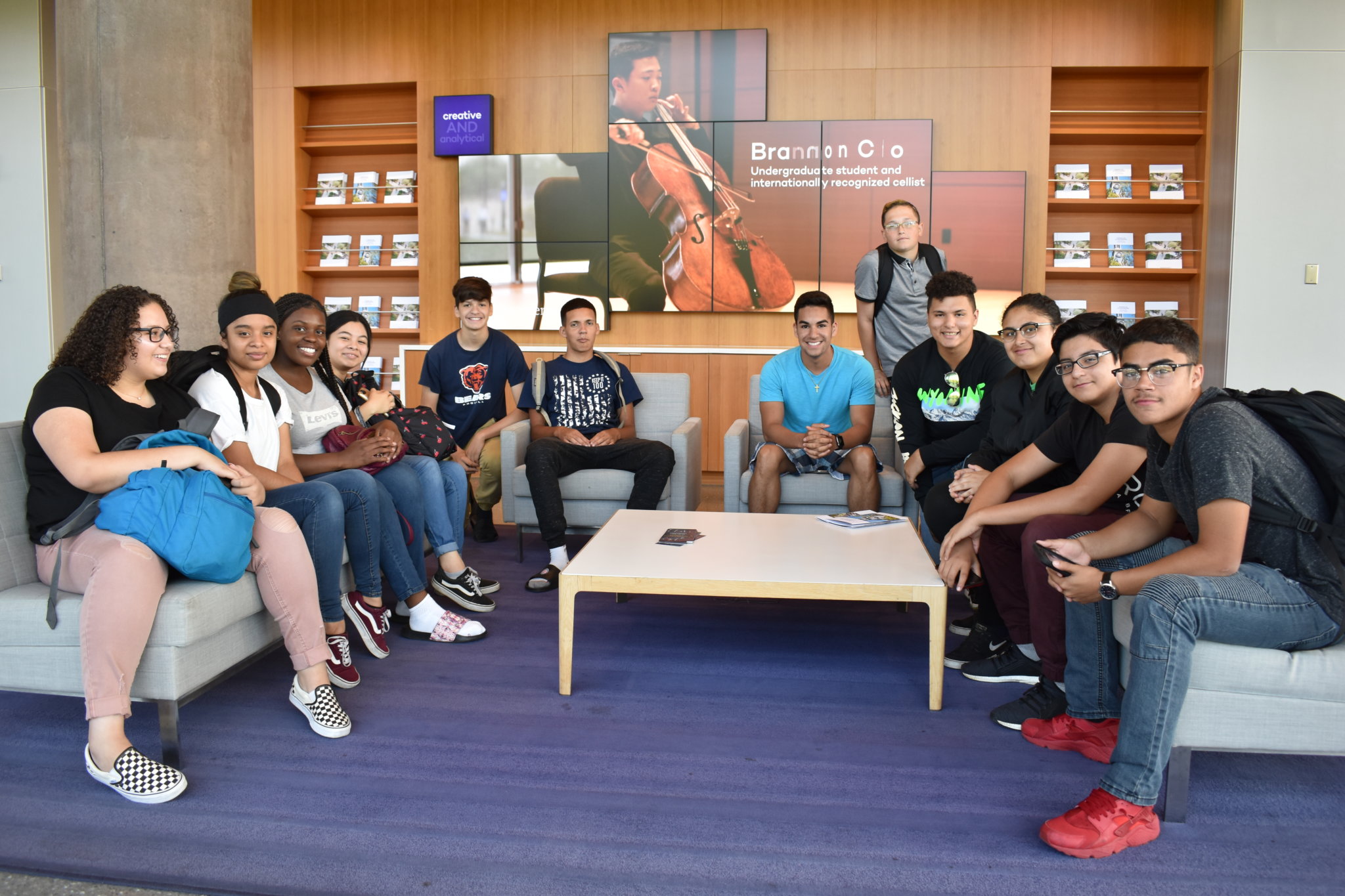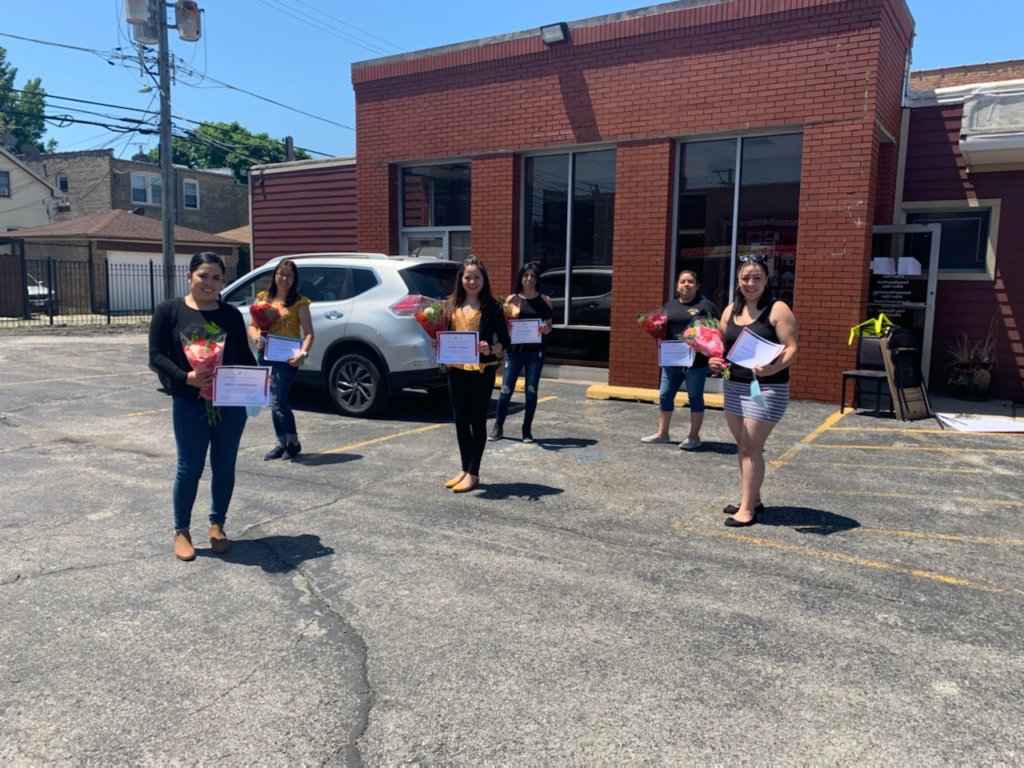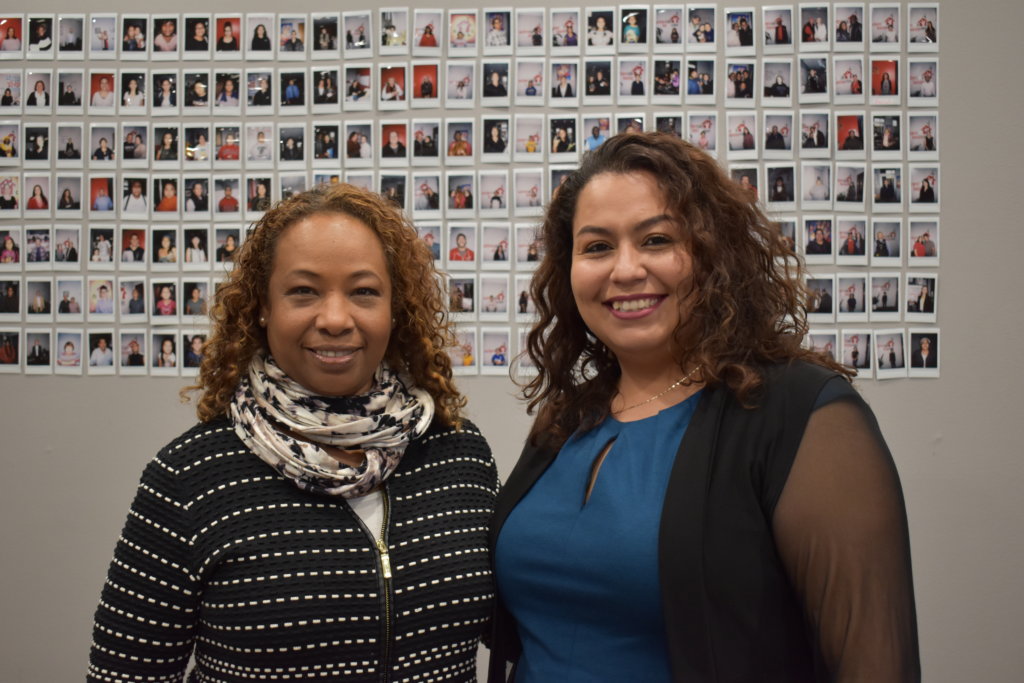Peer-to-peer financial education: How this UnidosUS Affiliate is helping Latinx youth understand finance
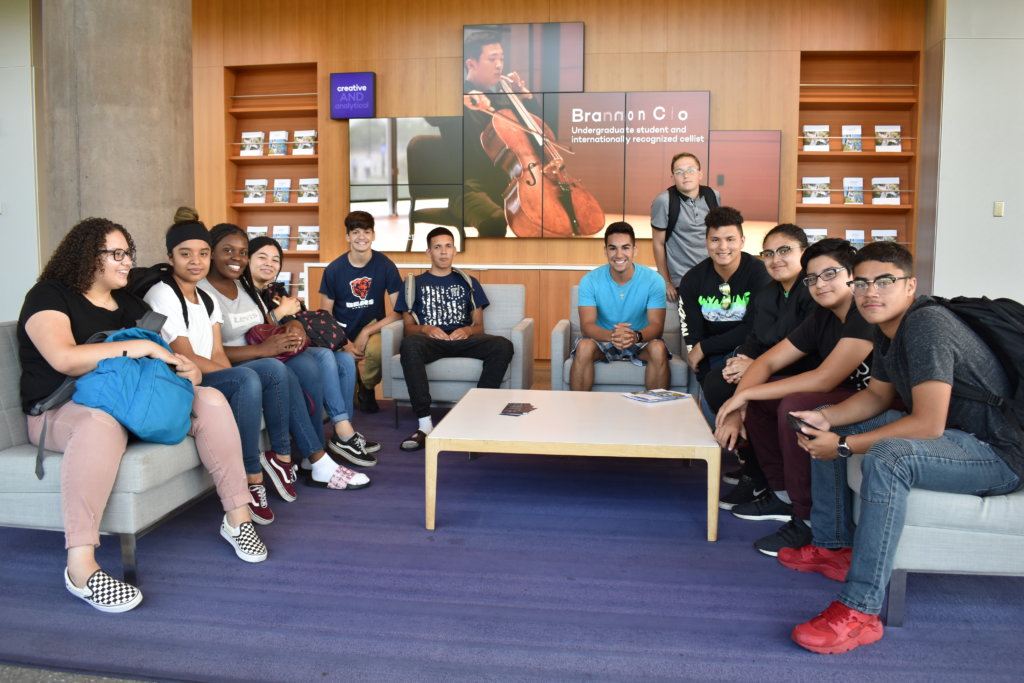
By Beatriz Paniego-Béjar, Content Specialist at UnidosUS
It is a weekday afternoon. The school day is over, but a group of middle-schoolers stay behind. Today, they’re beginning an afterschool program led by high-school mentors. During the next few weeks, they’ll learn financial basics like how to open a bank account, what credit cards are, and more.
We are on the Northwest side of Chicago, where Latinos account for approximately 85% of the population. Of them, one-third are youth under 18, and the Northwest Side Housing Center realized that they need to learn life skills that they won’t get in a regular classroom.
Keep up with the latest from UnidosUS
Sign up for the weekly UnidosUS Action Network newsletter delivered every Thursday.
“It is critical that our youth understand finances before it becomes a bigger issue,” says Esteban Rodriguez, Director of Community Schools and Youth at UnidosUS Affiliate Northwest Side Housing Center (NWSHC). Ending cycles of poverty—or as the Aspen Institute puts it: building intergenerational cycles of opportunity—requires our youth to have access to postsecondary education, opening their doors to a brighter future.
Nevertheless, if we are asking our youth to invest in their education, we first need to show them how. “If we want to continue talking to our youth about going into college, getting on credit cards and in debt before they even graduate, and then on top of that, getting into student debt, we are not setting them up for success,” Rodriguez explains. “They are going to get tempted to get a credit card just to get a 10% off [deal]. So teaching them about this beforehand is critical.”
NWSHC understands their community, and is adjusting to their needs. Knowing that one-third of the community in the Northwest side of Chicago are 18 and younger, NWSHC created a youth counsel. “High-schoolers are teaching these financial skills and having these conversations with middle-schoolers, so it’s almost peer-to-peer, and they are more likely to listen to them than to us as adults,” Rodriguez says.
A moral imperative crucial to our economy
UnidosUS’s report The Future of Banking: Overcoming Barriers to Financial Inclusion for Communities of Color, published in June with PolicyLink, stated that: “For our nation and its economy to thrive, communities of color must access the opportunities they need to live healthy, economically secure lives and reach their full potential. This is no longer just a moral imperative—it is now crucial to the future of the American economy.”
The work Northwest Side Housing Center is doing with peer-to-peer financial coaching, as well as the direct services offered—including support for families facing home foreclosure, coaching for first-time home buyers, and rental counseling and income support—become part of the solutions to ensure our economy thrives. However, financial institutions need to do more to attend to the financial needs of Latinos.
“We are the second-largest community in Chicago, and also the leading-second with higher rates of undocumented status in Chicago as well,” Rodriguez states. Being undocumented includes not having a Social Security Number, which is required to access many financial services. This leads to more undocumented people relying on alternative financial services (AFS), which aren’t as regulated and have much higher interest rates than traditional services like banks and credit.
According to The Future of Banking report, in 2017, 32.4% of Latino households used transaction AFS in the previous 12 months—a 7.1% decrease since 2011. Still, the rate of Latino households using transaction AFS remains more than double that of White households (12%).
Rodriguez says that “over the past few years, there have been improvements on financial institutions, but there is always more that can happen, specially more with the ITIN community.” ITIN stands for Individual Taxpayer Identification Number, a tax-processing number the IRS issues to those who are required to have a US taxpayer number, but who are ineligible to obtain a Social Security Number. These individuals “do have a reliable income source,” Rodriguez continues, “but the [financial] products available don’t make sense, specially with the amount that they are earning: it’s almost impossible to get a loan. If they were to get a loan just like any other individual with a Social Security Number, they could pay it and afford it.”
Financial inclusion for all
The Future of Banking report also shows that the financial services sector is a key lever to create a more equitable economy, so when we see that 30.2% of unbanked households—those in which no one in the house has a checking or a savings account—mention not trusting banks as a reason for not having an account, it’s clear that the financial services sector should be putting more effort into reaching this population, more than just offering literature and applications in Spanish.
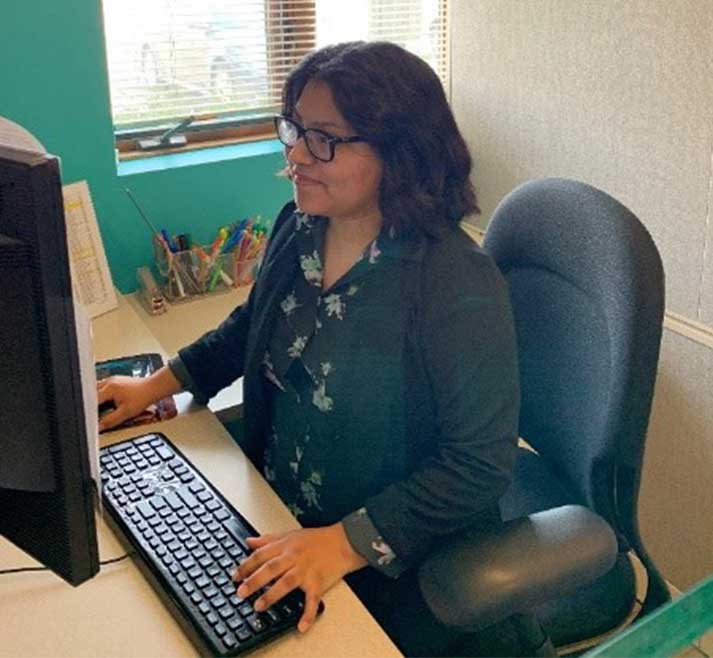
Financial inclusion is an important marker of economic health, “yet 63 million people are not fully included in the regulated and mainstream financial system,” the report claims. Confusion over lending criteria and not understanding credit scoring affects Latinos pursuing loans, applying for credit, and when making other financial decisions.
To ensure that we reach a more equitable economy, UnidosUS supports our Affiliate Network in their financial counseling programs, which helps our community understand more about their credit. For example, as The Future of Banking report reveals: “Focus group respondents who enrolled in financial counseling or prospective homebuyer education classes said they learned the most about their credit in these settings.”
Furthermore, to better reach unbanked and underbanked Latino communities, UnidosUS has also developed their Latinos in Finance Initiative, a program to train bilingual Latinos in the financial sector, developing financial services staff who are part of the communities that need the most support.
With these initiatives we plan to close the gap in trust and understanding between Latinos and banking. By the time the middle-schoolers on the Northwest side are old enough to open a checking account, they’ll know how to make the financial system work for them.
